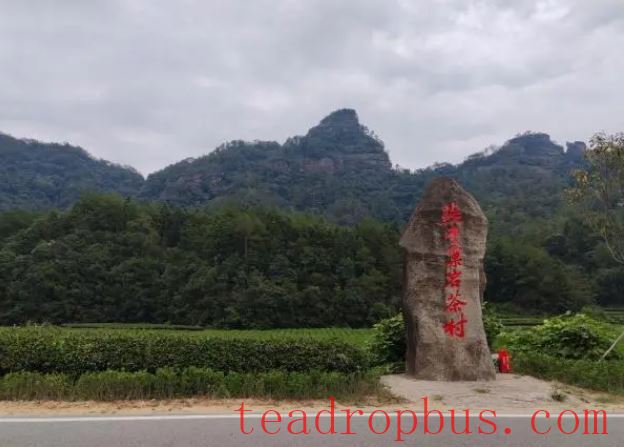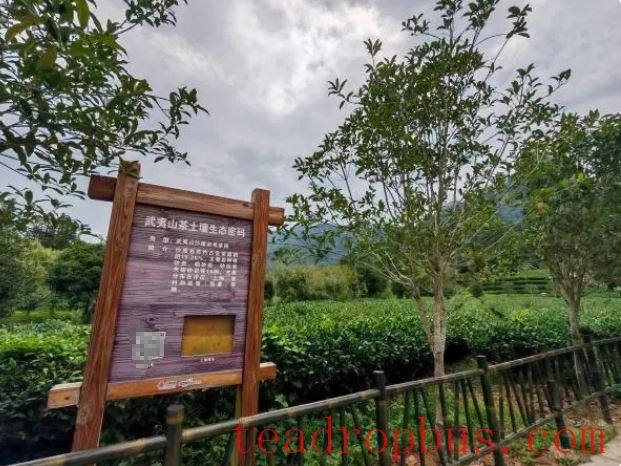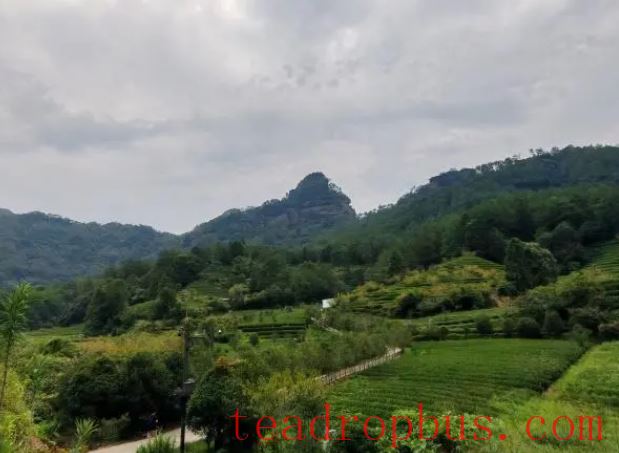China Women's News, full media journalist Lin Zhiwen and Han Yanran reporting from Nanping: In the peak of summer, strolling through the Tea bushes at the Yanziwo Ecological Tea Garden base, one is greeted by lush greenery, beautiful scenery, and an invigorating aroma. On August 13th, following the “High-Quality Development Research Tour” theme interview activity, reporters visited the ecological tea gardens in Wuyishan, Fujian Province, to explore the local practices of implementing the “three-tea integration” development concept and their impact on writing a new chapter in rural revitalization.

Yang Wenchun, the head of the Yanziwo Ecological Tea Garden base, has been growing tea here for over 20 years. Since 2025, under the guidance of Professor Liao Hong and her team of science and technology dispatchers from Fujian Agriculture and Forestry University, he has implemented a management model that involves “no fertilizers, no pesticides, and intercropping.” Tea bushes are intercropped with rape and soybeans to construct an ecological tea garden. Yang Wenchun told reporters, “The ecological tea garden model has not only improved the soil but also increased both the yield and quality of the tea. We use two sentences to describe it: previously, the quality was akin to the level of tea being a basic necessity of life, but now, after adopting this ecological management model, the quality of the tea has steadily improved, reaching a level comparable to the refined pleasures of life, and the economic benefits have increased by approximately 30%.”

“We are now marshaling all our city's resources, closely adhering to the ‘three-tea' integration philosophy to carry out related work,” Deputy Director Wu Linchun of the Wuyishan City Tea Industry Development Center told reporters. The ecological tea garden model is one aspect of strengthening tea technology. In recent years, the local area has continuously promoted the green ecological tea garden model, focusing on three main models: Professor Liao Hong's tea garden soil environment optimization technology from Fujian Agriculture and Forestry University, the integrated green control technology of Academician Chen Zongmao, and the biocontrol technology led by Teacher Zhang Yanxuan from the provincial academy of agricultural sciences. These efforts have achieved good results.
Vu Wang, the town mayor of Xingcun Town where the Yanziwo Ecological Tea Garden base is located, introduced the town's approach: “Tell the story of Tea culture, promote the brand ‘Tea is not fragrant unless it reaches Xingcun'; develop the integration of the tea industry, build a small town specialized in the tea industry chain; utilize tea technology to enhance the development and quality improvement of the tea industry.” Vu Wang stated that Xingcun Town, as the birthplace of the ‘three-tea' integration development concept, always remembers its mission and deeply implements the ‘three-tea' integration development concept. It leads with the promotion of tea culture, aims to strengthen the tea industry, and supports its development with advancements in tea technology, striving to write a new chapter in rural revitalization characterized by an ecologically livable environment, thriving industries, and prosperous citizens.

During interviews, reporters learned that Nanping is a renowned tea-producing region in China, known as the “birthplace of black tea,” “home of Oolong Tea,” and “origin of White Tea.” Wuyishan City within its borders is the starting point of the world's “Tea Road” and the only “Chinese tea culture and Art Hometown” in the country. To strengthen and expand the tea industry, the key lies in technology and innovation. For this reason, Nanping City was the first in the country to propose standards for green ecological tea gardens, establishing 30 demonstration bases for green ecological tea gardens and selecting the first batch of “Most Beautiful Green Ecological Tea Gardens” in Nanping City, with the Yanziwo Green Ecological Tea Garden base included in the national “Three-Tea” Integration Comprehensive Standardization Demonstration Project. A total of 152 tea products have been certified as green food in the city, with Zhenghe and Shaowu successfully creating national green food (tea) raw material standardization production bases, and Wuyi Star selected as one of the country's first ecological farms.
Ecological tea gardens move forward into a new era, writing a new chapter in rural revitalization. According to statistics, approximately 85% of towns, 50% of administrative villages, and 45% of households, nearly 350,000 people, are engaged in tea production and business activities across the city. By the end of 2025, the tea garden area in Nanping City reached 721,000 mu (approximately 48,067 hectares), with a gross tea output of 95,000 tons and a gross value of 5.32 billion yuan. The entire industrial chain had a value of 44.51 billion yuan, accounting for more than one-quarter of the province's total. Tea has become a “golden leaf” driving rural revitalization and enriching the people.